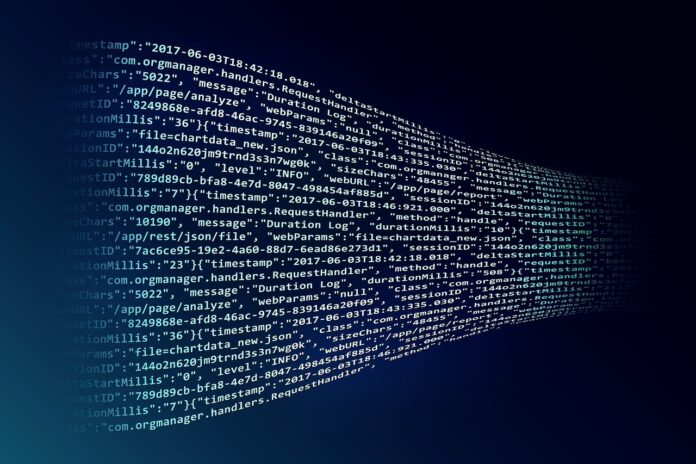Fusing the Quantum and Machine Learning Realms for Unprecedented Insights
In the age of big data and exponential technological advancements, a revolutionary fusion has taken place—quantum machine learning. This cutting-edge field combines the power of quantum computing with the principles of machine learning, opening up new frontiers for data analysis, pattern recognition, and optimization. Quantum machine learning promises to revolutionize industries by tackling complex problems that were once thought to be beyond the reach of classical computing. In this article, we embark on a journey into the world of quantum machine learning, exploring its principles, groundbreaking applications, and the transformative potential it holds for the future of artificial intelligence and data-driven decision-making.
Quantum Computing: A Paradigm Shift
At the heart of quantum machine learning lies quantum computing, a paradigm shift in information processing. While classical computers process data using bits, which can represent either a 0 or a 1, quantum computers leverage the power of qubits, which can exist in a superposition of both 0 and 1 states simultaneously. This fundamental property opens up a world of computational possibilities.
Quantum computers offer exponential computational speedup for certain algorithms, enabling the processing of vast amounts of data and solving complex optimization problems with unparalleled efficiency. These capabilities make them ideal for tackling the computational challenges posed by machine learning tasks.
Quantum-enhanced Machine Learning Algorithms
Quantum machine learning algorithms harness the power of quantum computing to enhance traditional machine learning techniques. By leveraging quantum principles such as superposition, entanglement, and interference, these algorithms can extract valuable insights from large and complex datasets more efficiently than classical counterparts.
Quantum machine learning algorithms encompass a wide range of tasks, including classification, clustering, regression, and generative modeling. They offer the potential to uncover hidden patterns, optimize complex systems, and make predictions with unprecedented accuracy.
Quantum Feature Mapping and Quantum Neural Networks
One of the key areas of quantum machine learning is quantum feature mapping. This technique allows for the efficient representation of classical data in a quantum format, enabling the utilization of quantum algorithms for data analysis. Quantum feature mapping leverages the principles of quantum mechanics to transform classical data into quantum states that can be processed by quantum algorithms.
Additionally, quantum neural networks have emerged as a powerful tool in quantum machine learning. These networks leverage the capabilities of quantum computing to process and learn from complex data, offering the potential for enhanced pattern recognition, optimization, and decision-making.
Quantum Machine Learning Applications
Quantum machine learning has far-reaching applications in various fields. In drug discovery, quantum machine learning can accelerate the screening of vast chemical compound databases, helping identify potential candidates for new medications. It can also optimize complex molecular simulations, leading to more accurate predictions of drug interactions and properties.
In finance, quantum machine learning can enhance portfolio optimization, risk analysis, and fraud detection. Its ability to process and analyze massive datasets enables more sophisticated modeling and prediction of market trends, leading to informed investment decisions.
Quantum machine learning also finds applications in optimization problems, such as supply chain management, logistics, and resource allocation. By leveraging the computational power of quantum algorithms, these problems can be solved more efficiently, optimizing efficiency, reducing costs, and improving decision-making.
The Future of Quantum Machine Learning
The future of quantum machine learning is brimming with potential. As quantum computers continue to advance in scalability, qubit coherence, and error correction, the capabilities of quantum machine learning will expand exponentially.
Collaboration between quantum physicists, computer scientists, and machine learning experts will be pivotal in driving the progress of quantum machine learning. By combining insights from these diverse disciplines, researchers can refine quantum algorithms, develop quantum hardware architectures, and explore novel applications.
Moreover, the synergy between quantummachine learning and classical machine learning is a fertile ground for advancements. Hybrid approaches that combine the strengths of both classical and quantum computing are being explored, bridging the gap between the quantum and classical worlds of machine learning.
The future of quantum machine learning holds the promise of transforming industries and revolutionizing data analysis. It opens up possibilities for solving previously intractable problems, unlocking new insights, and enabling more informed decision-making in a wide range of domains.
Embracing the Quantum Revolution in Machine Learning
The rise of quantum machine learning represents a paradigm shift—an integration of quantum mechanics and artificial intelligence that propels us into a new era of data analysis. It challenges us to reimagine the possibilities of what can be achieved, empowering us to extract valuable insights from complex datasets, optimize systems with unprecedented efficiency, and make data-driven decisions that were once beyond our reach.
As we venture deeper into the quantum realm of machine learning, we unlock the potential for transformative advancements in science, technology, and society. Quantum machine learning offers a glimpse into the future—a future where the fusion of quantum and classical computing enables us to tackle grand challenges, uncover hidden patterns, and make breakthroughs that will shape our world for generations to come.
In this era of quantum exploration, quantum machine learning stands as a testament to human ingenuity, scientific curiosity, and the relentless pursuit of knowledge. It invites us to embrace the power of quantum mechanics, harness the capabilities of quantum computers, and embark on a journey of discovery and innovation that will redefine the frontiers of artificial intelligence and data analysis.
The future of quantum machine learning is bright, filled with limitless possibilities for advancing our understanding of complex systems, optimizing decision-making processes, and unlocking the full potential of data-driven technologies. As we continue to unravel the mysteries of the quantum world through quantum machine learning, we move closer to a future where the boundaries of data analysis and artificial intelligence are pushed to new horizons.




